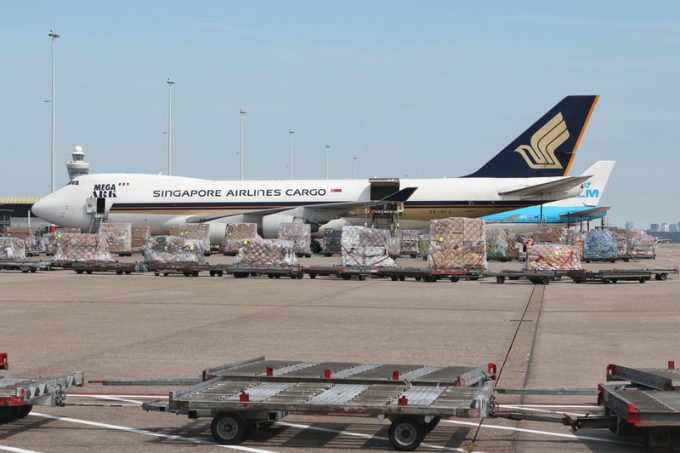NOCC adds third ‘ammonia-ready’ PCTC newbuild orderbook
Norwegian Car Carriers (NOCC) has added a third ‘ammonia-ready’ 7,000ceu LNG-powered ship to its two-vessel, ...
TFII: SOLID AS USUALMAERSK: WEAKENINGF: FALLING OFF A CLIFFAAPL: 'BOTTLENECK IN MAINLAND CHINA'AAPL: CHINA TRENDSDHL: GROWTH CAPEXR: ANOTHER SOLID DELIVERYMFT: HERE COMES THE FALLDSV: LOOK AT SCHENKER PERFORMANCEUPS: A WAVE OF DOWNGRADES DSV: BARGAIN BINKNX: EARNINGS OUTODFL: RISING AND FALLING AND THEN RISING
TFII: SOLID AS USUALMAERSK: WEAKENINGF: FALLING OFF A CLIFFAAPL: 'BOTTLENECK IN MAINLAND CHINA'AAPL: CHINA TRENDSDHL: GROWTH CAPEXR: ANOTHER SOLID DELIVERYMFT: HERE COMES THE FALLDSV: LOOK AT SCHENKER PERFORMANCEUPS: A WAVE OF DOWNGRADES DSV: BARGAIN BINKNX: EARNINGS OUTODFL: RISING AND FALLING AND THEN RISING

Singapore is looking to leverage its air and sea connections by reinventing itself as a manufacturing hub, as the fourth industrial revolution gathers pace.
A slew of modern manufacturing industries are building facilities in the South-east Asia hub, with Singapore eyeing the 680m-strong population of the Association of Southeast Asian Nations (ASEAN) market.
Jaisey Yip, VP cargo business at Changi Airport, told The Loadstar at this week’s Transport Logistic in Munich: “We aim to develop a strong domestic manufacturing base to fill cargo capacity, and we aim to be a hub for South-east Asia connecting to the world.”
Singapore is aiming to increase exports by 25% and manufacturing 50% (by value) by 2030, as the government ramps-up its Green Plan for net zero emissions by 2050.
Government investment for infrastructure developments, as part of the plan, comes from $35bn of green bonds to be issued by 2030, with an inaugural $1.8bn 50-year bond issue last August.
Funding and investment, it is hoped, will encourage technologically advanced industries in the robotics, digital, automotive and pharmaceutical sectors to invest in Singapore. It’s a strategy that has already seen some success. Companies building manufacturing facilities in the island state include French pharma company Sanofi, BioNtech, Hyundai and semiconductor producer ASM International.
To meet the aims Changi Airport is refurbishing its logistics facility and developing an air cargo village to be operational by the mid-2030s, increasing annual handling capacity from the 3m tonnes to 5.4m tonnes capacity with the cargo village, with last year’s volumes amounting to 1.85m tonnes.
According to Ms Yip, three key initiatives will ensure new manufacturing and supply chain connections meet climate change goals.
“Logistics is about speed and delivery,” she said, “and we need to ensure we have a robust cold chain capability.”
That will require staff training in new processes and Changi Airport is helping key participants to meet CEIV pharma certification standards for handling temperature-critical cargo.
Nesté has announced a 1m tonne-a-year sustainable aviation fuel (SAF) plant, so “Changi Airport is now SAF ready”, said Ms Yip, adding: “We believe there will be a shift to SAF by the airlines.”
However, to put that into context, Singapore Airlines alone used about 29m tonnes of jet fuel in 2021/22 fiscal year.
In addition, the airport is electrifying all its ground handling vehicles and equipment with energy from the national grid, much of which will be renewable energy imported from Laos and solar and hydrogen power from Indonesia.
That imported energy aims to reduce the country’s current reliance on LNG, from which 95% of its energy requirements are currently met. A major component of LNG is methane which is a particularly potent greenhouse gas.
Comment on this article